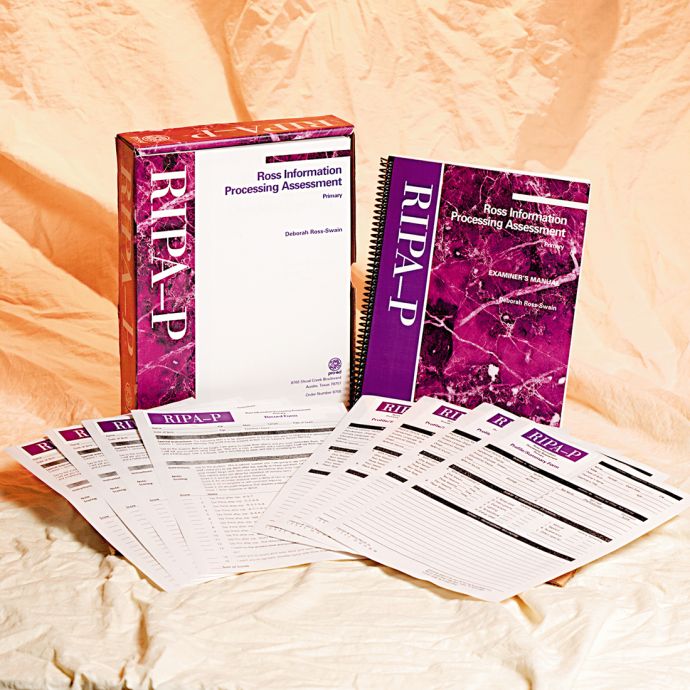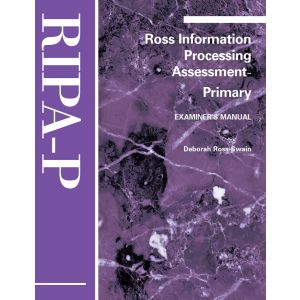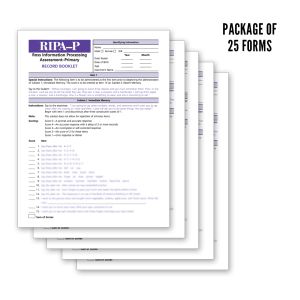RIPA-P: Ross Information Processing Assessment - Primary
| Author | Deborah Ross-Swain |
|---|---|
| Test Level | B |
| Age Range | Preschool, School-Age |
| Testing Time | 30 minutes |
| Administration | Individual |
Testing Time: 30 minutes
Administration: Individual
The Ross Information Processing Assessment-Primary is a valuable tool for speech pathologists in hospitals, clinics, private practice, and public schools, as well as for resource specialists and special education teachers. The RIPA-P helps you identify and quantify information processing skill impairments in children ages 5 through 12 who:
- have had a traumatic brain injury
- have experienced other neuropathologies that affect information processing such as seizure disorders or anoxia
- exhibit learning disabilities or weaknesses that interfere with learning acquisition or educational achievement.
RIPA-P is unique in that its norms include children who have learning diabilities, and its eight subtests allow you to assess a wide range of information processing skills, all in a single battery.
Using this self-contained assessment, youll obtain specific information about processing skill areas quickly and easily; youll get percentile ranks and standard scores. Feel free to use all of the subtests, or only those that are applicable to a given student. The RIPA-P eliminates the need to use several batteries with each individual you need to test. You will find the scores valuable for developing treatment plans and goals.
The RIPA-P was standardized on 115 individuals ages 5 through 12. Reliability coefficients were found to be .81 or above, and more than a third of them were over .90. Validity studies show that the test discriminates between œnormal and LD or neurological problems. Item discrimination coefficients for the RIPA-P range from .39 to .94.
Complete RIPA-P kit includes: Examiners Manual, 25 Record Forms, and 25 Profile/Summary Forms, all in a sturdy storage box. (©1999)





